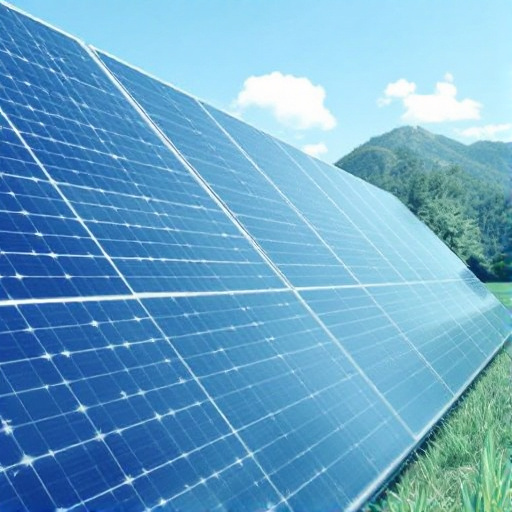Featured Articles
- 7 Essential Psychological Barriers to Overcome for Successful Retirement Planning and Financial Security
- Exploring the Impact of Longevity Hormones on Financial Strategies for Extended Retirement Horizons
- Navigating the Retirement 'Gig Economy': Unconventional Income Streams for Financial Freedom in Later Years
- "Retirement in the Metaverse: How Virtual Realities are Shaping Future Financial Security"
- "Retirement Rebellion: Why Young Investors Are Ditching 401(k)s for Financial Independence Movements"
Retiring Off-Grid: Embracing Sustainable Living as a Viable Alternative in Your Golden Years
Retiring Off-Grid: Embracing Sustainable Living as a Viable Alternative in Your Golden Years
Retiring off-grid is becoming an appealing option for many seeking a sustainable and fulfilling lifestyle in their golden years. Embracing this alternative not only benefits the environment but also fosters a deep sense of community and self-sufficiency.
The Allure of Off-Grid Living
Imagine waking up to the sound of birds chirping instead of alarm clocks, surrounded by nature rather than concrete jungles. For many, this idyllic dream is slowly becoming a reality. According to a report by the National Renewable Energy Laboratory, around 60 million Americans live in some form of off-grid arrangement—an impressive statistic that illustrates the growing trend towards self-sufficiency.
Understanding Off-Grid Living
So, what exactly does "off-grid living" mean? Essentially, it refers to a lifestyle where individuals or families disconnect from conventional utilities such as water, electricity, and gas. Instead, they harness renewable resources like solar power, wind, and rainwater collection, allowing them to sustain their living environment while reducing their dependence on commercial systems. Picture this: a cozy cabin with solar panels glinting in the sun, a vegetable garden flourishing outside, and no pesky utility bills at the end of the month. Sounds appealing, doesn’t it?
Aging Gracefully: The Off-Grid Advantage
Retirement is a time to reflect on your life, pursue passions, and engage in activities that fulfill you. For many, the prospect of retiring off-grid offers a chance to delve deeper into hobbies like gardening, woodworking, or simply enjoying quiet time by the fire. Not only does off-grid living provide a serene lifestyle, but it can also be surprisingly cost-effective. The U.S. Department of Energy estimates that households can save anywhere from 30% to 40% on energy costs by shifting to off-grid energy solutions. This saving becomes exponentially more significant as one transitions into retirement.
Case Study: The Johnson Family
Let’s take a closer look at the Johnsons, a couple in their early 60s who decided to transition to off-grid living after their children left the nest. They bought a piece of land in a rural part of Oregon, which allowed them to cultivate a homestead. By employing solar panels, wind turbines, and rainwater catchment systems, the Johnsons now live happily without the constraints of utility bills. In fact, according to their calculations, they recouped their initial investment in sustainable systems within four years—a remarkable return! Now, they enjoy additional income through online platforms, offering workshops on sustainable gardening and homesteading skills.
Dispelling Common Myths
Yet, some may argue that off-grid living is only for the young and adventurous. This couldn’t be further from the truth! One major misconception is that maintaining an off-grid lifestyle requires an immense amount of physical labor. While it’s true that there will be work, especially in establishing a garden and maintaining systems, many retirees find joy in these tasks. In fact, a study published in the "Journal of Aging Studies" suggests that engaging in physical activity contributes to overall well-being and can stave off age-related health problems.
Getting Started: Tips for Transitioning
Navigating the transition to off-grid living can seem daunting, but it doesn’t have to be. Here’s a handy checklist to ease your journey:
- Research: Familiarize yourself with local laws and zoning regulations concerning off-grid living.
- Start Small: If going fully off-grid seems overwhelming, consider taking baby steps—perhaps a small garden or a few solar panels.
- Connect with Community: Online forums, local meet-ups, and sustainable living workshops are excellent resources for support and knowledge.
- Budget Wisely: Remember to calculate initial investments versus long-term savings—research the best systems for your needs!
- Embrace the Learning Curve: Don’t shy away from mistakes; they are stepping stones to mastery.
Financial Considerations: A Sustainable Investment
Retiring off-grid may initially require a considerable investment; however, the potential savings and benefits cannot be overstated. For instance, average monthly utility bills in the U.S. hover around $200. That adds up to $2,400 annually—money that could instead be invested in an enriching off-grid lifestyle. The National Renewable Energy Laboratory reports that homeowners who invest in solar energy can see returns of up to 200% over the lifespan of the solar panels. Furthermore, factoring in the rising costs of traditional utilities, going off-grid becomes a more appealing investment each year.
Consider your future financial landscape: The less you depend on the grid, the less vulnerable you are to economic fluctuations. You may even discover diverse avenues to generate passive income, like turning a portion of your land into a natural campground or selling homemade preserves at local markets.
The Emotional and Social Aspect
Beyond the tangible benefits, off-grid living creates profound emotional rewards. Many retirees report feeling more connected to their surroundings and the community they cultivate. Imagine sharing meals with neighbors who join you to celebrate your bountiful harvest or trading skills in woodcrafting and sewing. This communal spirit fosters not just friendship and camaraderie, but also a support network that bolsters your well-being.
Drawbacks and Reality Checks
Of course, it wouldn’t be a complete picture without acknowledging the challenges associated with off-grid living. Adjusting to a life away from conveniences such as grocery stores down the street or access to electricity on-demand can be an adjustment. You may find yourself facing potential setbacks like fluctuating energy capture, water shortages, or equipment maintenance needs. However, many retirees view these challenges as exciting hurdles rather than insurmountable obstacles. A sense of adventure often accompanies the off-grid lifestyle—a chance to reclaim your autonomy and autonomy.
A New Way of Aging
What if, instead of dreading aging, you embraced it with all its potential for exploration and new experiences? Retiring off-grid invites you to step outside the conventional narrative of aging. It encourages a vibrant interpretation—imagine a life where your days are infused with nature, creativity, and sustainability. The escapades you share with family and friends may even become legendary tales in your community!
As writer and off-grid enthusiast Jenna Woginrich shares in her book, “Made from Scratch: Discovering the Pleasures of a Handmade Life,” stepping away from the hustle of modern existence leads to a paradox of simplicity that unlocks deeper joys in life. Woginrich captures the sentiment beautifully: “Making is a medicine. I find meeting my own needs to be inherently healing regardless of the outcome.”
Conclusion: A Path Worth Exploring
As we transition into an age where sustainability is not just an option but a necessity, retiring off-grid offers an enticing and meaningful alternative. It’s both an opportunity to lead by example for future generations and a personal journey towards greater autonomy, health, and happiness. If you’re contemplating your golden years, consider the off-grid lifestyle—an embrace of sustainable living that might just become the adventure of a lifetime.
In the words of a wise sage, “Life begins at the end of your comfort zone.” So step out, explore, and invigorate your retirement with the beauty of off-grid living. The landscape of life is vast, and it might just hold the secrets to the most rewarding years yet!




